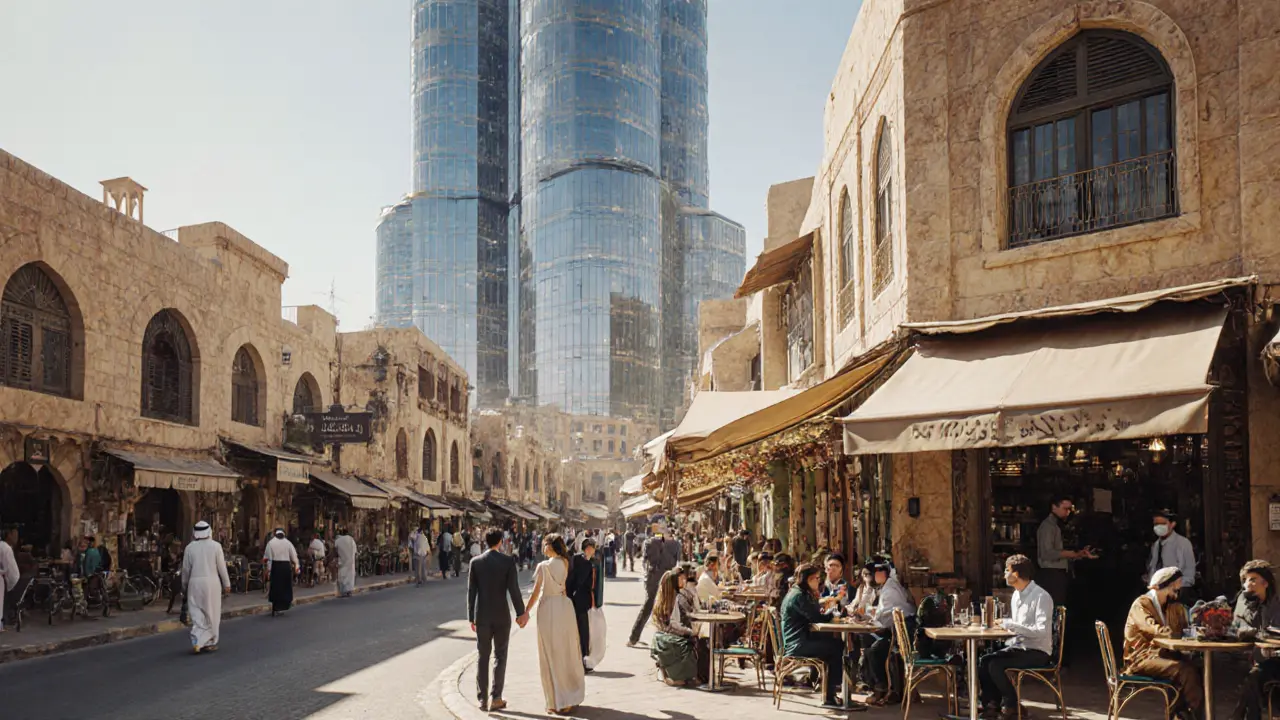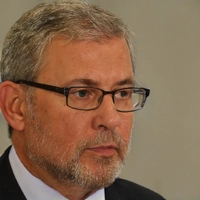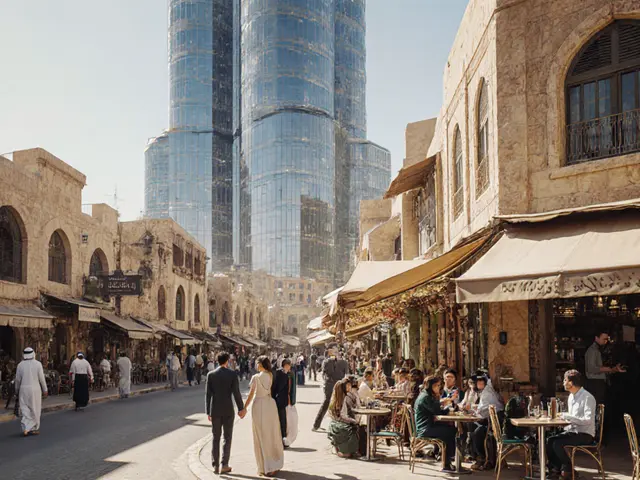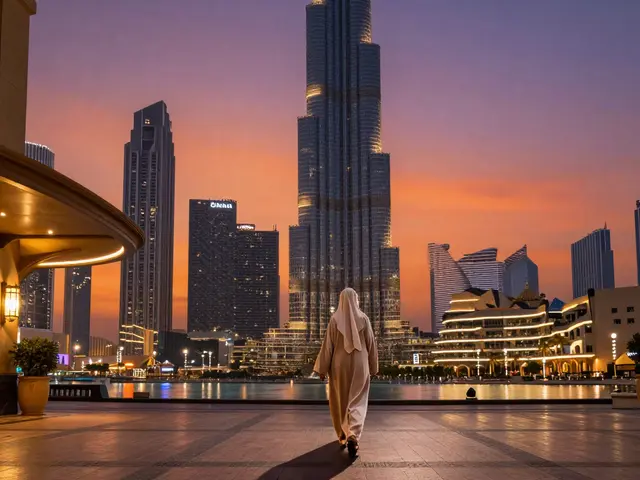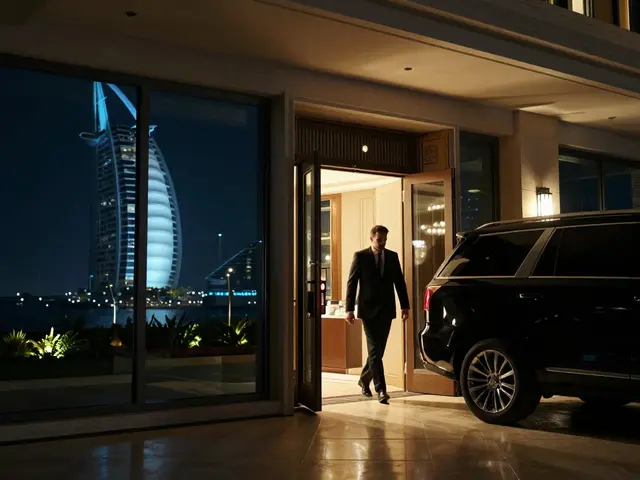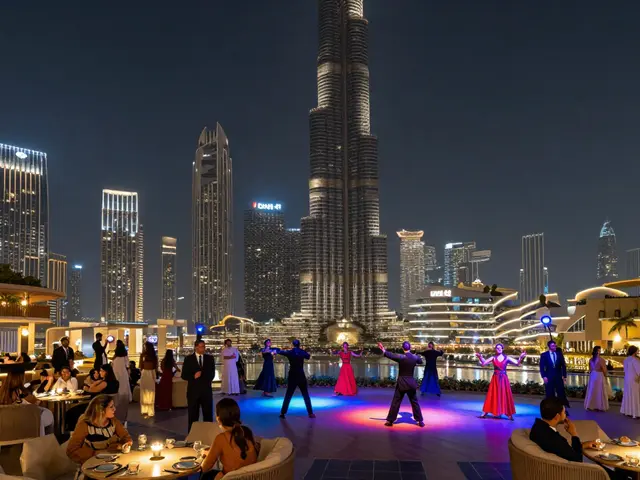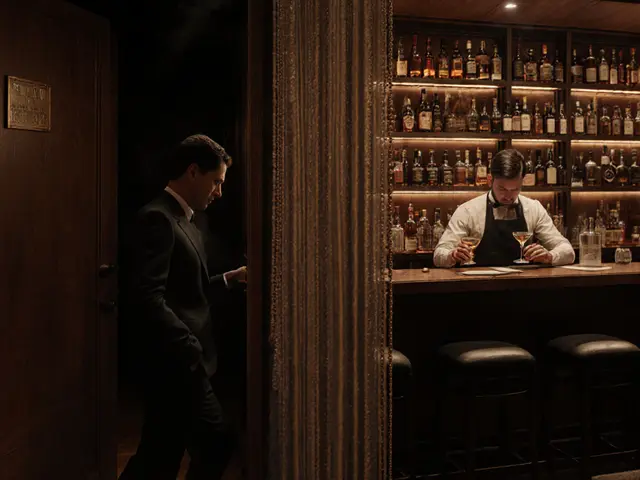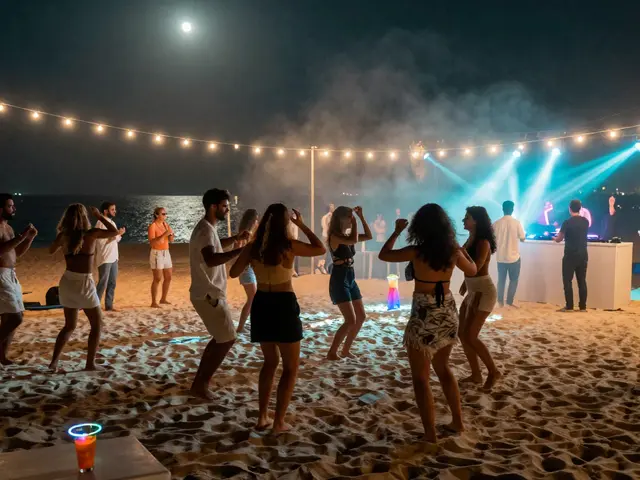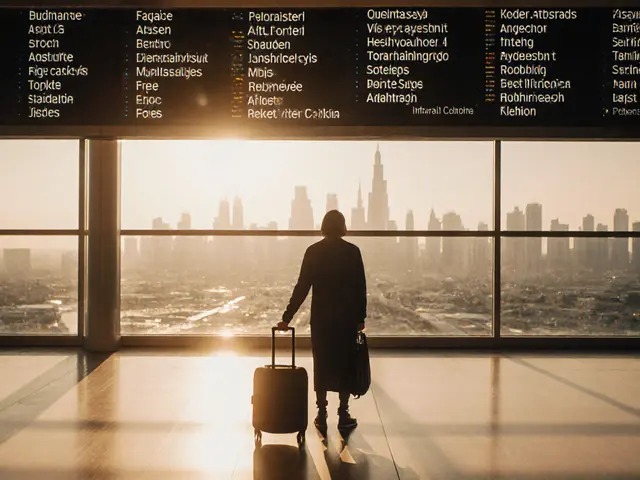Ever wondered why conversations about sex in Dubai feel different today than they did a decade ago? The answer isn’t just about new laws or tourist numbers - it’s a cultural mash‑up. Western ideas about intimacy, privacy, and personal freedom have been slipping into the desert city’s fabric, reshaping attitudes, business models, and even the legal landscape.
Historical backdrop: From strict codes to a more open dialogue
For most of the 20th century, Dubai’s sexual climate was governed by Sharia law, a set of Islamic principles that define public morality, marriage, and sexual conduct. The law made premarital sex a punishable offense and tightly regulated any public display of affection. Families, tribal structures, and local religious leaders reinforced these norms, creating a collective sense of modesty.
That all began to shift in the early 2000s when the emirate’s skyline exploded with skyscrapers and the population exploded with expatriates. Suddenly, the city wasn’t just a trading hub - it was a global playground. Western culture refers to the set of social values, media, and lifestyle trends that originated in Europe and North America and spread worldwide through media, travel, and the internet arrived on the scene via hotels, nightclubs, and online platforms, introducing a different take on intimacy.
Legal framework: How the government responded
Dubai’s leaders have walked a tightrope. On one side, they want to protect traditional values; on the other, they need to keep the city attractive to foreign investors and tourists. In 2016, the government introduced a revised “Public Decency” ordinance that softened penalties for consensual private conduct, provided nothing was displayed publicly. Though the core of Sharia law remains, the enforcement has become more nuanced.
At the same time, the city launched a series of “Family Friendly” initiatives - think private beach resorts and VIP lounges where couples can enjoy a degree of privacy previously unseen. These venues cater directly to the Expat community, a growing demographic that brings with it a Western mindset about sexual autonomy.
Expatriates and tourism: The engine of change
Data from the Dubai Statistics Center show that expatriates now make up over 80% of the population. Most of them come from Europe, North America, or Australia - regions where sexual freedom is part of mainstream discourse. When these newcomers settle, they often look for spaces where they can relax without fear of legal repercussions. This demand gave rise to the sex tourism industry, which, while still unofficial, is a notable part of the city’s nighttime economy.
Luxury hotels launched “couples packages” that include private jacuzzi suites, discreet in‑room services, and even adult‑oriented entertainment. Nightclubs in the Marina and Downtown areas now feature “after‑hours” sections with dim lighting and strict entry checks, creating a safe bubble for West‑influenced socializing.
Digital shift: Social media and dating apps
Remember when meeting someone meant a coffee shop or a friend’s party? Today, apps like Tinder, Bumble, and local platforms such as Happn UAE dominate the scene. These apps export Western courting rituals - swiping, casual chatting, and “ghosting” - straight into Dubai’s streets.
Research from the University of Dubai (2023) found that 46% of respondents aged 25‑35 use dating apps, and 31% said the apps influenced how they view relationships. The data also highlight a split: while many appreciate the freedom to explore, a sizable minority feel uncomfortable because the apps expose them to more liberal expectations that clash with family or community norms.
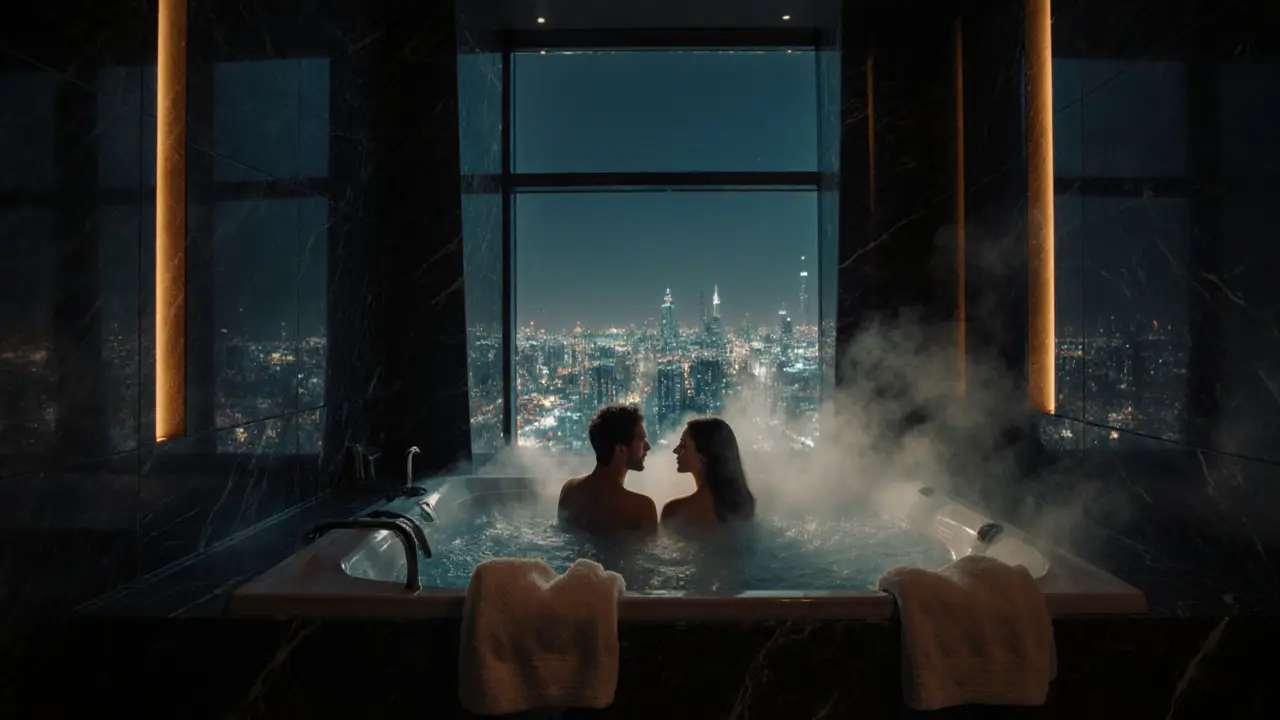
Changing attitudes: From taboo to talk
Public opinion polls conducted by YouGov Middle East in 2024 indicate a noticeable shift. When asked if premarital sex should be socially accepted, 38% said “yes,” up from just 12% in 2010. Younger Emiratis-especially those studying abroad-cited exposure to Western media, movies, and Netflix series as key influences.
Even local influencers on Instagram and TikTok have begun to discuss topics once considered off‑limits: consent, sexual health, and relationship dynamics. Their audiences, which often include both Emiratis and expatriates, create a feedback loop that normalizes these conversations.
Challenges and backlashes
Not everyone is cheering for the change. Conservative religious groups organize rallies, calling for stricter enforcement of traditional morals. In 2024, a high‑profile case saw a social media influencer charged for public displays of affection in a beach club, sparking a debate about the consistency of law enforcement.
Moreover, the rapid influx of Western ideas sometimes creates cultural friction. Some Emirati families feel that the younger generation is adopting values that undermine familial cohesion. The result is a silent but real tension playing out in homes, schools, and workplaces.
Quick checklist: What to know if you’re navigating Dubai’s sexual landscape
- Public displays of affection are still sensitive; keep it discreet in public spaces.
- Private venues (resort suites, VIP lounges) offer more freedom but may require proof of age and marital status.
- Dating apps are popular, but profile verification is key for safety.
- Understand that legal consequences can vary; consensual private conduct is generally tolerated, but public leaks are not.
- Respect local customs - asking about sexual norms can be perceived as intrusive.
Comparison: Traditional vs. Western‑influenced views in Dubai
| Aspect | Traditional View | Western‑influenced View |
|---|---|---|
| Premarital Sex | Taboo, legally punishable | Seen as personal choice, increasingly accepted among youth |
| Public Affection | Strongly discouraged | Limited to private or designated venues |
| Dating Practices | Family‑arranged, modest courtship | Online apps, casual meet‑ups, open communication |
| Sexual Education | Minimal, often religiously framed | More resources through NGOs, online platforms |
| Legal Enforcement | Strict, public prosecutions | Selective enforcement, focus on public order |
Looking ahead: Will Western influence keep growing?
Dubai’s Vision 2030 emphasizes a “tolerant, open, and innovative” society. While that language is broad, it signals official support for an environment where global ideas can coexist with local values. If the trend continues, we can expect:
- More “couples‑only” luxury resorts catering to Western expectations.
- Increased dialogue around consent, sexual health, and LGBTQ+ rights - subject to careful political navigation.
- Further integration of digital platforms that normalize “modern” relationship dynamics.
At the same time, the balance will remain delicate. The Emirati leadership will likely keep a watchful eye on any shift that threatens social cohesion, meaning the evolution will be gradual rather than abrupt.
Frequently Asked Questions
Is premarital sex illegal in Dubai?
Yes, under traditional Sharia‑based law, premarital sex is illegal. However, enforcement typically focuses on public exposure rather than private consensual acts. People caught in private settings are rarely prosecuted unless there is evidence of a public scandal.
Can tourists openly display affection in Dubai?
Public displays of affection (like kissing or hugging) are still frowned upon and can lead to fines. Most tourists opt for discreet behavior in public but enjoy more freedom in private hotel spaces.
Do dating apps work in Dubai?
Yes, apps like Tinder, Bumble, and local platforms are popular, especially among expatriates and younger Emiratis. Profiles are often verified, but users should remain cautious about privacy and cultural sensitivities.
Are there any LGBTQ‑friendly venues?
Openly LGBTQ‑friendly venues are rare. Some private clubs may be discreetly tolerant, but public advocacy remains limited due to legal restrictions.
How does Western culture actually influence locals?
Exposure through media, education abroad, and interaction with expatriates introduces ideas about consent, personal choice, and sexual health. Surveys show younger Emiratis are more accepting, though the shift is gradual and balanced by family and religious values.
Understanding this cultural blend helps anyone-whether a tourist, expat, or curious reader-navigate Dubai’s evolving landscape with respect and awareness. The city’s future will likely keep the conversation alive, balancing tradition with a modern, global outlook.
